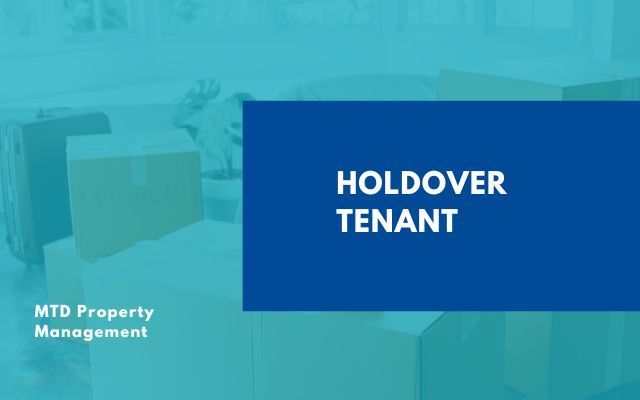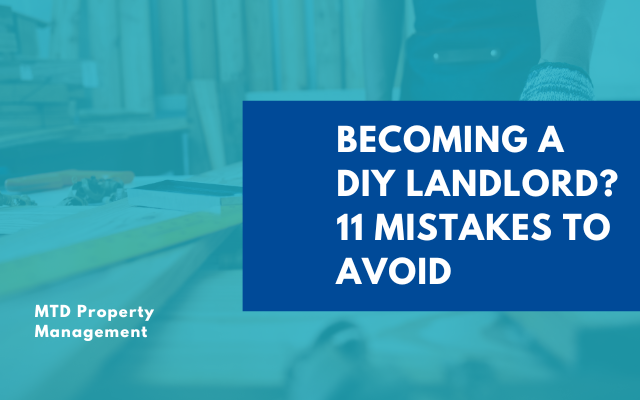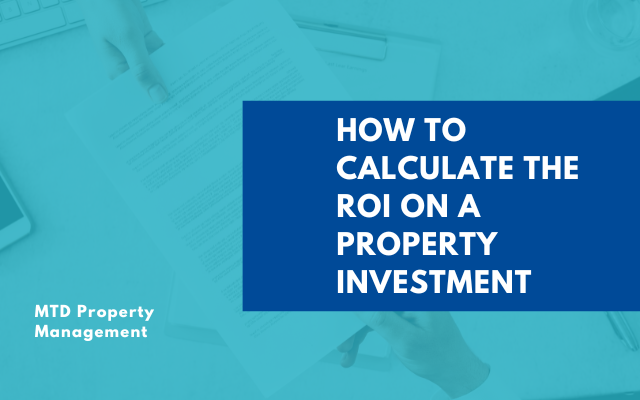Holdover Tenant

One of the most challenging aspects of being a landlord is dealing with a holdover tenancy; when a tenant refuses to leave the premises after their lease term ends. If you accept rent from the holdover tenant, it can complicate matters further and potentially disrupt your long-term plans for the rental.
This situation can become even more complex if the tenant continues to stay without a new lease or agreement in place. A holdover tenancy can create legal and financial challenges for landlords, often requiring resolution in court.
If the landlord accepts rent from the holdover tenant, it may further complicate the situation, as it can be seen as an agreement to extend the tenancy under potentially unclear terms. For instance, the arrangement could shift to a month-to-month lease, leaving the landlord with less control over the lease period.
To address this, landlords should issue a notice of termination promptly to clarify their intent to end the lease agreement and the tenancy.
Delays in doing so may lead to further complications, requiring the landlord to evict the tenant through formal eviction proceedings, which may involve court intervention. If the tenant does not comply with the notice, it is vital to avoid accepting rent payments, as doing so can undermine the termination process.
As a landlord, it's essential to handle such situations promptly while ensuring legality, fairness, and respectability. If the tenant refuses to vacate after receiving a notice of termination of the lease agreement, the landlord may have no choice but to evict them through court proceedings to regain control of the unit. Initiating eviction proceedings when necessary ensures the rental is vacated and available for future tenants.
But don’t worry; we’ve got you covered! In this article, we’ll explore various options, including legal measures, for handling holdover tenants and managing the complexities that arise when a tenant refuses to vacate the rental after their lease has ended.
What Does “Holdover Tenant” Mean?
A holdover tenant is a renter who stays in a house or unit without the landlord’s permission after their lease expires. In some cases, it may be intentional.
In others, it may occur due to a misunderstanding or miscommunication between the parties, especially if the landlord continues to accept rent payments. This situation can become even more complex if the tenant remains on the premises after the lease term expires without a new lease agreement in place while still paying rent.
While a holdover tenant may legally remain in the unit after the lease term ends and the landlord takes action to remove them, they are considered a "tenant at sufferance." This means the holdover tenant is only staying in the rental because the landlord tolerates their presence, often due to paying rent without a formal lease agreement. If disputes arise, the matter may need to be resolved in court.
The landlord may choose to end the tenancy, stop accepting further rent payments, and evict the holdover tenant at any time, especially if there’s no new lease term in place. Legal proceedings, including court filings, are often necessary to regain possession of the property and ensure compliance with the law.
If a holdover tenant remains in the property without a new lease, the landlord has the right to halt accepting rent and proceed with eviction to protect their property and maintain control over the situation between both parties. In such cases, the court may play a crucial role in determining the outcome and enforcing the landlord's rights.
Landlords should be prepared to provide documentation and evidence if the situation escalates to court. This ensures a fair resolution for both parties and prevents unnecessary delays in regaining possession of the premises.
The Hidden Dangers of Holdover Tenancy

Holdover tenants can create several issues that could harm a landlord’s property and business, especially when a tenant refuses to leave after receiving a notice of termination.
If the landlord accepts rent from the holdover tenant, it can complicate the situation further, particularly if the tenant continues paying rent, and affect the property’s management.
For that reason, it’s essential to understand what those issues are and learn how to handle them effectively. Here are some of the hidden dangers of holdover tenancy:
Legal Headaches
Holdover tenants can complicate the
eviction process. Even though the holdover tenant has no right to stay in the unit, legally removing them can still take time and money.
Property Damage
A holdover tenant may cause damage to the rental property, either accidentally or intentionally, even after receiving a notice of termination. If the tenant refuses to vacate the property, it can lead to costly rental property repairs.
These repairs might make the property uninhabitable, potentially causing the unit to remain vacant for an extended period. In such cases, landlords may need to consider the possibility of eviction to address the issues and protect their investment.
Liability Risks
Holdover tenants may still be legally responsible for any accidents or injuries occurring on the rental property, even after receiving a notice of termination and after their lease agreement has expired. Landlords should be aware that the tenant's responsibility for such issues continues, potentially impacting the property and any ongoing disputes.
Difficulties Showing the Unit
Holdover tenants make it difficult for the landlord to welcome new renters. This can result in a longer vacancy period, leading to additional financial losses for the landlord.
Legal Complications
Laws regarding the eviction process and landlord-tenant disputes often differ for holdover tenants. Check Illinois state laws to ensure you comply with local jurisdiction.
How to Manage Holdover Tenants
When dealing with a holdover tenant, there are two options available to you as a landlord:
Allow the Tenant to Stay
If the landlord accepts rent and decides to let the holdover tenant stay, you’ll need to continue collecting rent payments from them monthly. However, if you allow them to remain in the unit, holdover rights may prevent you from evicting the tenant later.
Pursue an Eviction

If you want to remove a tenant from the rental unit, you can pursue an eviction process. This may involve serving the tenant with a notice of removal, typically requiring a 30-day notice period or whatever Illinois’ laws require.
Reasons for starting the eviction process may include non-payment of rent or criminal activity such as drug use or domestic violence. It’s also important to understand how to evict a holdover tenant if they remain after the lease has expired, as this process may involve additional steps and legal considerations.
How to Avoid Holdover Tenants?
It's essential to take proactive steps before the lease agreement term expires to avoid a holdover tenancy. Here are some tips:
Conduct Tenant Screening
As a landlord, you should always conduct an
effective tenant screening before welcoming anyone into your rental property. This could reduce the odds of renting to problematic tenants.
Communicate with Your Tenants
Maintain open communication with your tenants. Inform them well before the lease term expiration date what your intentions are regarding the lease
renewal or termination.
Renew the Lease
If you want the tenant to stay, offer them a lease renewal before it expires. This will give them time to consider the offer and make arrangements if necessary.
If the lease expires and the tenant remains in the property without a new lease in place, landlords may face the challenge of managing the situation. Without a clear lease renewal, landlords could need to begin an eviction process.
Addressing this proactively can help avoid complications and ensure that the property remains in good condition, while also making the eviction process smoother if it becomes necessary.
Offer a Month-To-Month Lease
If you need time before committing to a long-term lease, consider offering a month-to-month lease. This type of lease provides flexibility for both you and the tenant, allowing you to adjust terms as needed.
If circumstances change or if you need to reclaim the property, you can terminate the lease with proper notice. This flexibility can be particularly useful for landlords who want to avoid long-term commitments while still maintaining control over their property.
Include Holdover Clauses in the Lease
Be sure to include holdover clauses in the
rental agreement. They should detail the tenancy terms if the renter stays beyond the term.
Be Proactive about Enforcing the Lease Terms
If you notice a tenant is approaching the end of their lease term and has yet to communicate with you about their intentions, reach out to them and remind them of the lease expiration date. It’s also a good idea for landlords to discuss any outstanding rent payments or other obligations with both this tenant and any other tenants.
By staying proactive, landlords can ensure everything is settled before the lease ends and avoid complications with the rental property.

Periodic Tenancy and Holdover: What You Need to Know
A periodic tenancy is a type of rental agreement that doesn’t have a fixed lease term or an end date. Instead, it automatically renews at the end of each period, whether that's weekly, monthly, or yearly.
Understanding how these renewals work and knowing when to issue a notice of termination is important for managing such agreements effectively.
This type of tenancy offers flexibility to both parties, allowing the tenant to pay rent payments for a short-term period without worrying about renewing the lease frequently and assuring the landlord of a long-term income stream.
Without proper eviction notice, the tenancy will continue to roll over, requiring the landlord to keep collecting rent payments and potentially face issues with eviction.
The length of the notice period required for ending the tenancy will depend on the jurisdiction and the lease agreement terms, and landlords should ensure they comply with these requirements to avoid complications with the rental property.
Bottom Line
Holdover tenants are a common landlord-tenant issue. Landlords must stay on top of lease agreements and communicate with their tenants to avoid these situations. It's crucial to understand Illinois laws regarding eviction notices and tenant rights to effectively manage and evict a holdover tenant while protecting themselves and taking appropriate steps.
If you need help handling holdover tenants, contact
MTD Property Management. We have the experience and expertise to guide you through this situation. Get in touch today!









